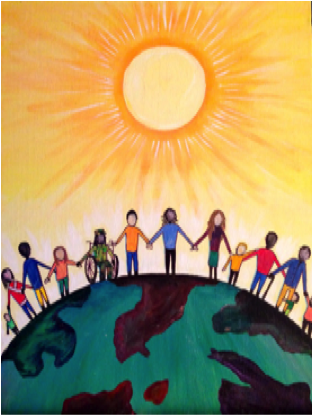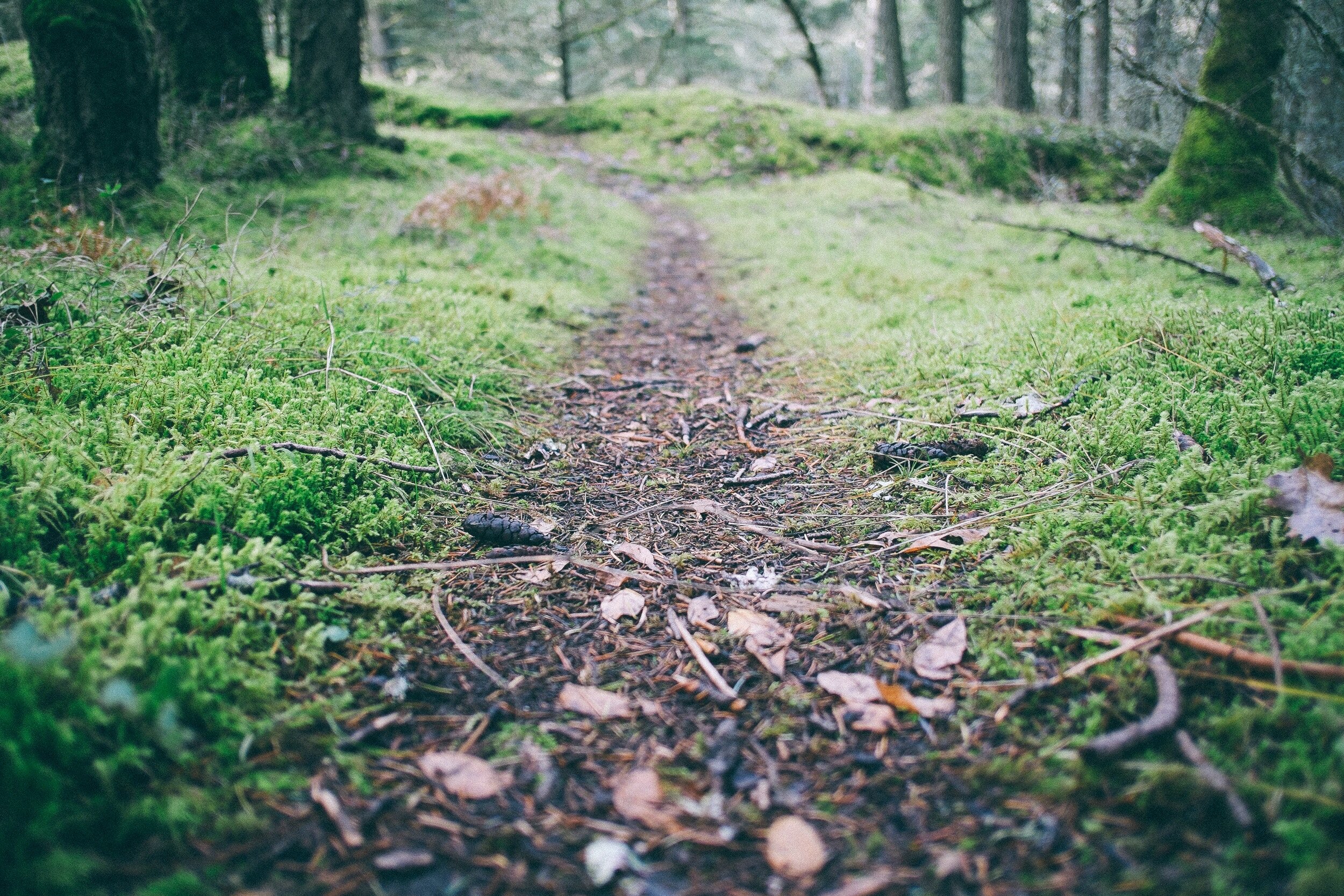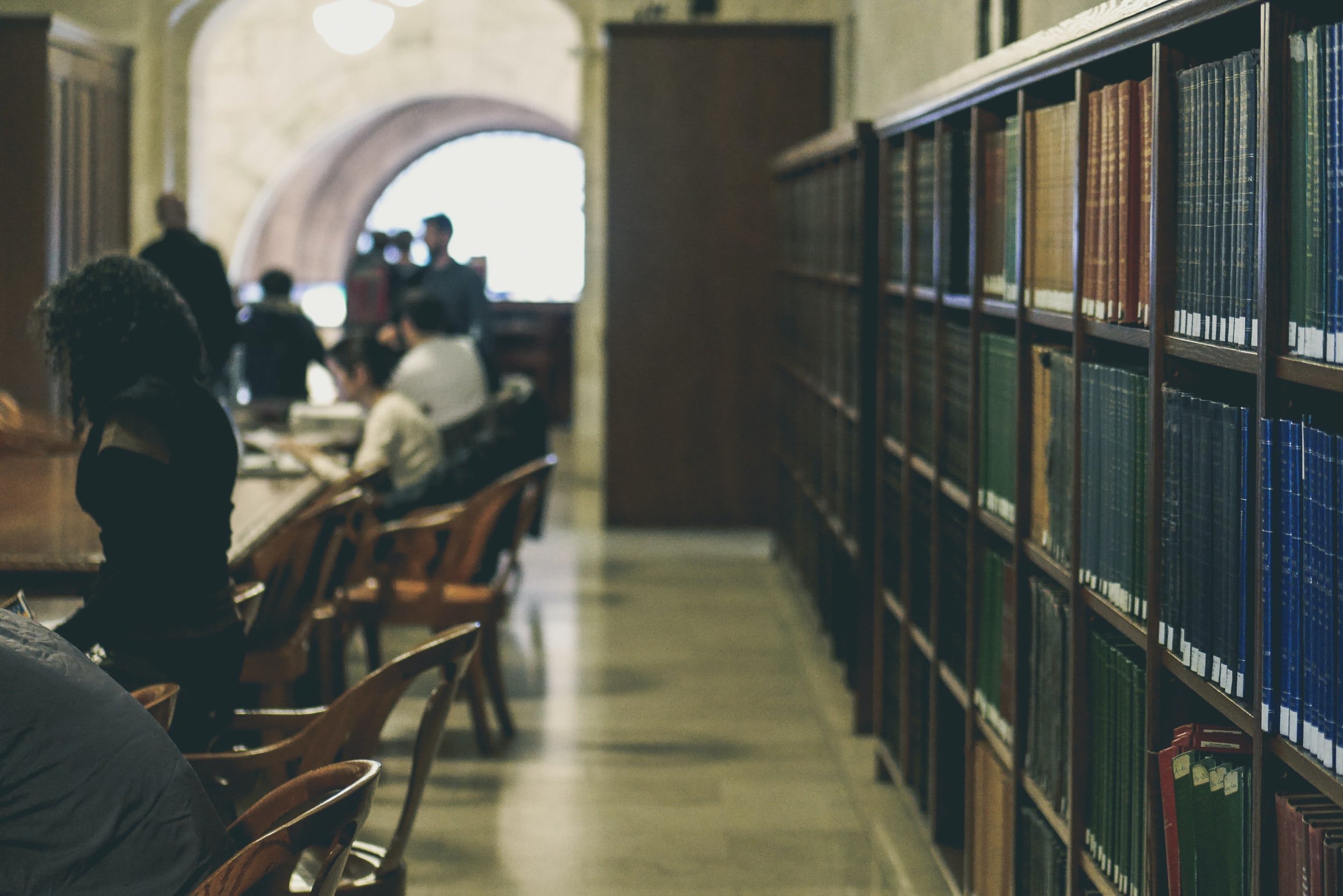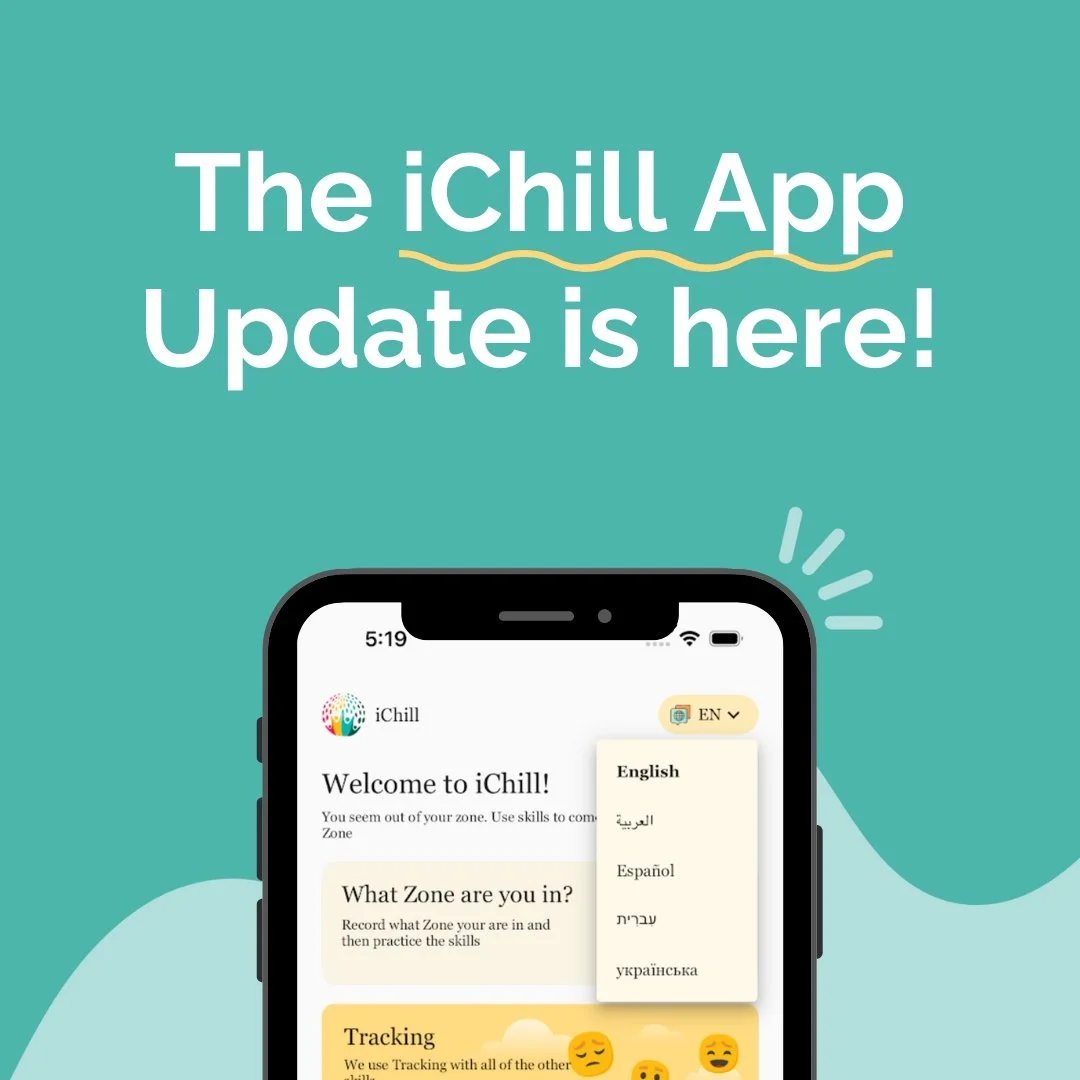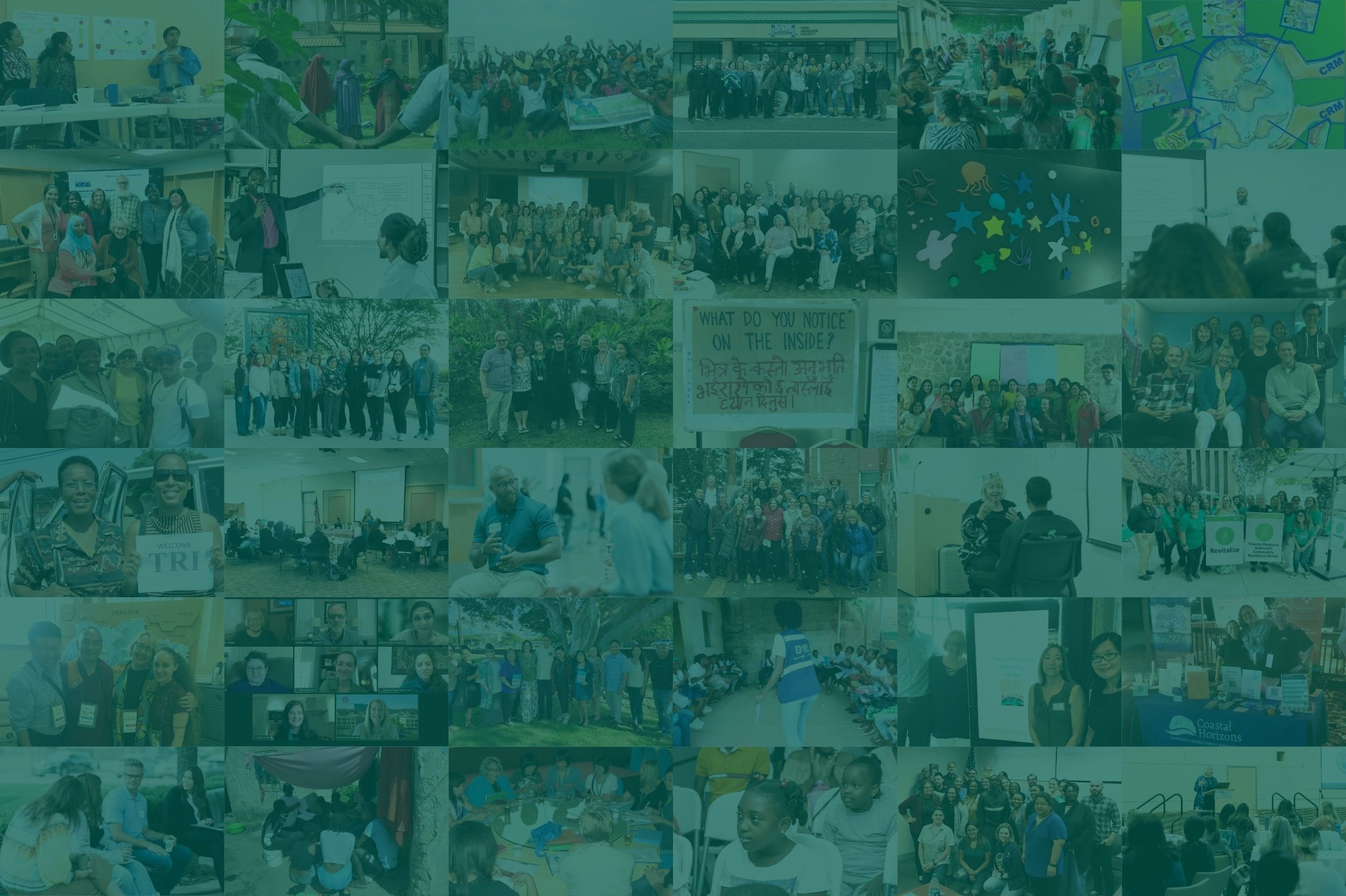
Humanitarian Response
Around the world, people continue to face unimaginable violence and devastating climate-related disasters. TRI continually works to provide support to individuals and communities affected by recent and ongoing crises. Join us in our commitment to reduce the impact of traumatic experiences during and after a disaster.
Trauma Resource Institute
The Trauma Resource Institute (TRI) is a nonprofit organization devoted to cultivating trauma-informed and resiliency-focused individuals and communities throughout the world. TRI is known internationally for its innovative perspectives promoting individual and community well-being. Two types of training have been developed, the Trauma Resiliency Model (TRM)® and the Community Resiliency Model (CRM)®. Both models are biologically based and teach wellness skills, cultivating well-being in mind, body, and spirit. While TRM is oriented toward mental health professionals, CRM takes on a public health focus and has been taught to professionals and natural leaders of communities.
accessible, affordable, adaptable, transportable
The Models
The Trauma Resiliency Model (TRM)® and Community Resiliency Model (CRM)® are designed to help individuals understand the biology of traumatic stress reactions and learn specific skills to return the body, mind, and spirit back to balance after experiencing traumatic events. These skills can awaken the hope that has, for some, been lost after natural and human-made disasters.
The iChill app
Are you feeling stressed, not quite yourself, or worried about a loved one? iChill is here to help. iChill guides you in the use of the the six wellness skills of TRM and CRM to help you manage sensations associated with trauma and stress, enhancing your well-being.
We recently released an updated and expanded iChill app, which is now available in a sleek, new format in five languages: English, Arabic, Spanish, Hebrew and Ukrainian.
Trauma Resiliency Model (TRM)® - for professionals and clinicians
The Trauma Resiliency Model (TRM)® Training is designed to teach skills to individuals and clinicians helping children and adults with traumatic stress reactions.
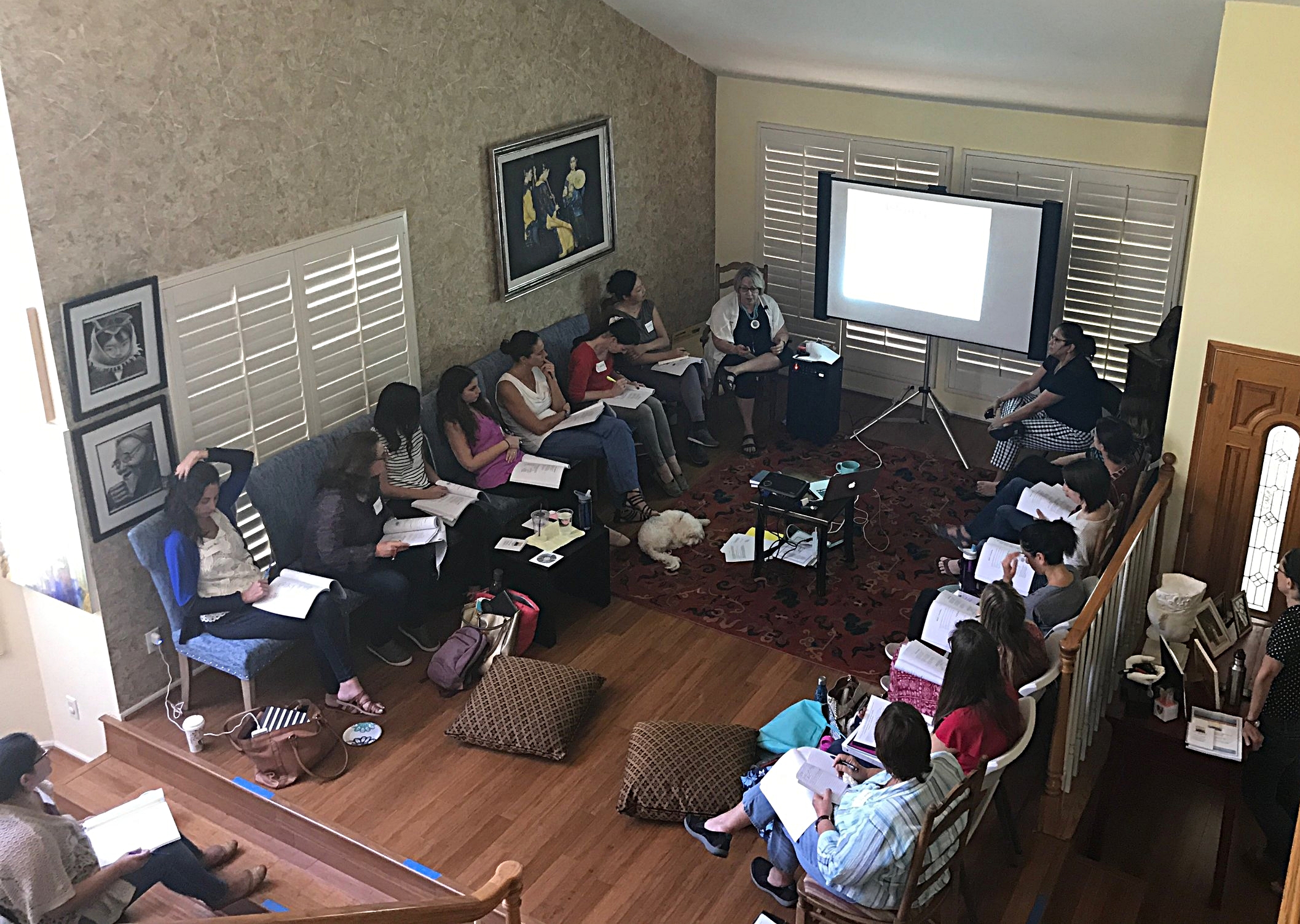
Community Resiliency Model (CRM)® - for everyone
The Community Resiliency Model (CRM)® trains community members to not only help themselves but to help others within their wider social network.
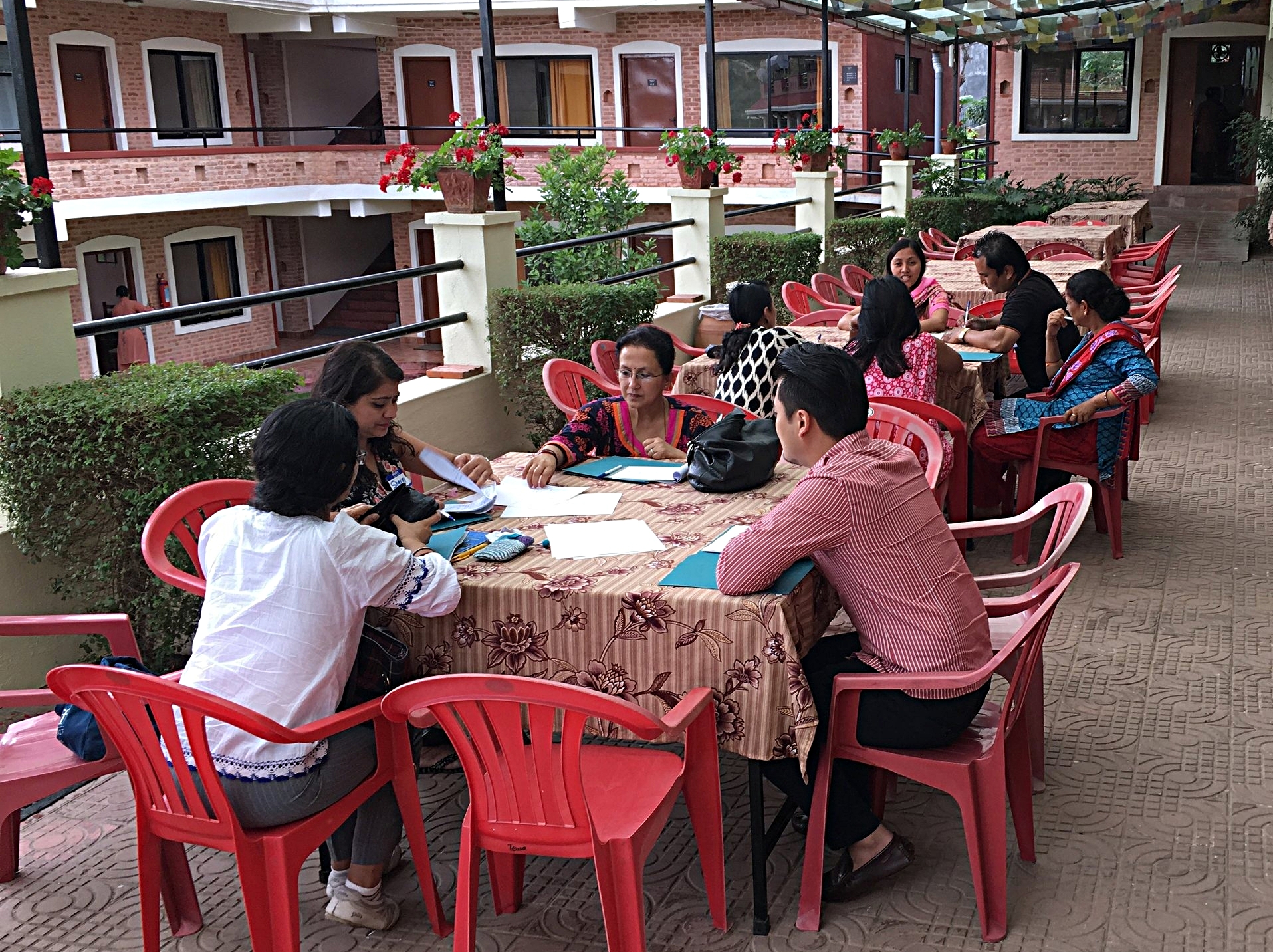
“Chase the resilience.”
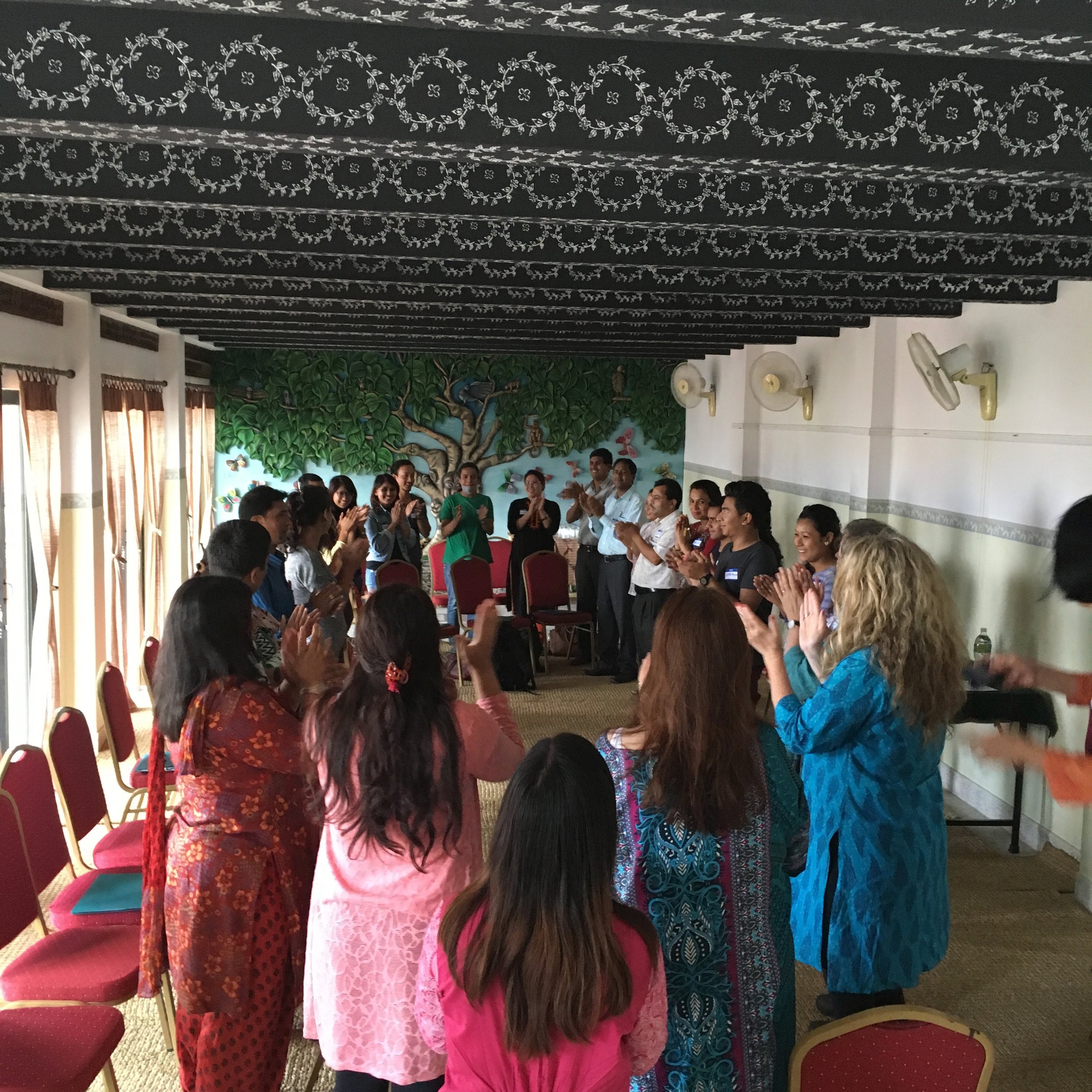
Building resilience worldwide
Compassion without borders
TRI is committed to expanding resiliency worldwide. We have a number of trainings and projects happening throughout the year, both domestically in the U.S. and internationally.
“I think this is what Nelson Mandela meant by the ‘Rainbow Nation.’ Learning about how to stabilize the nervous system is equality and is beyond nations, culture, religion, and ethnicity.”
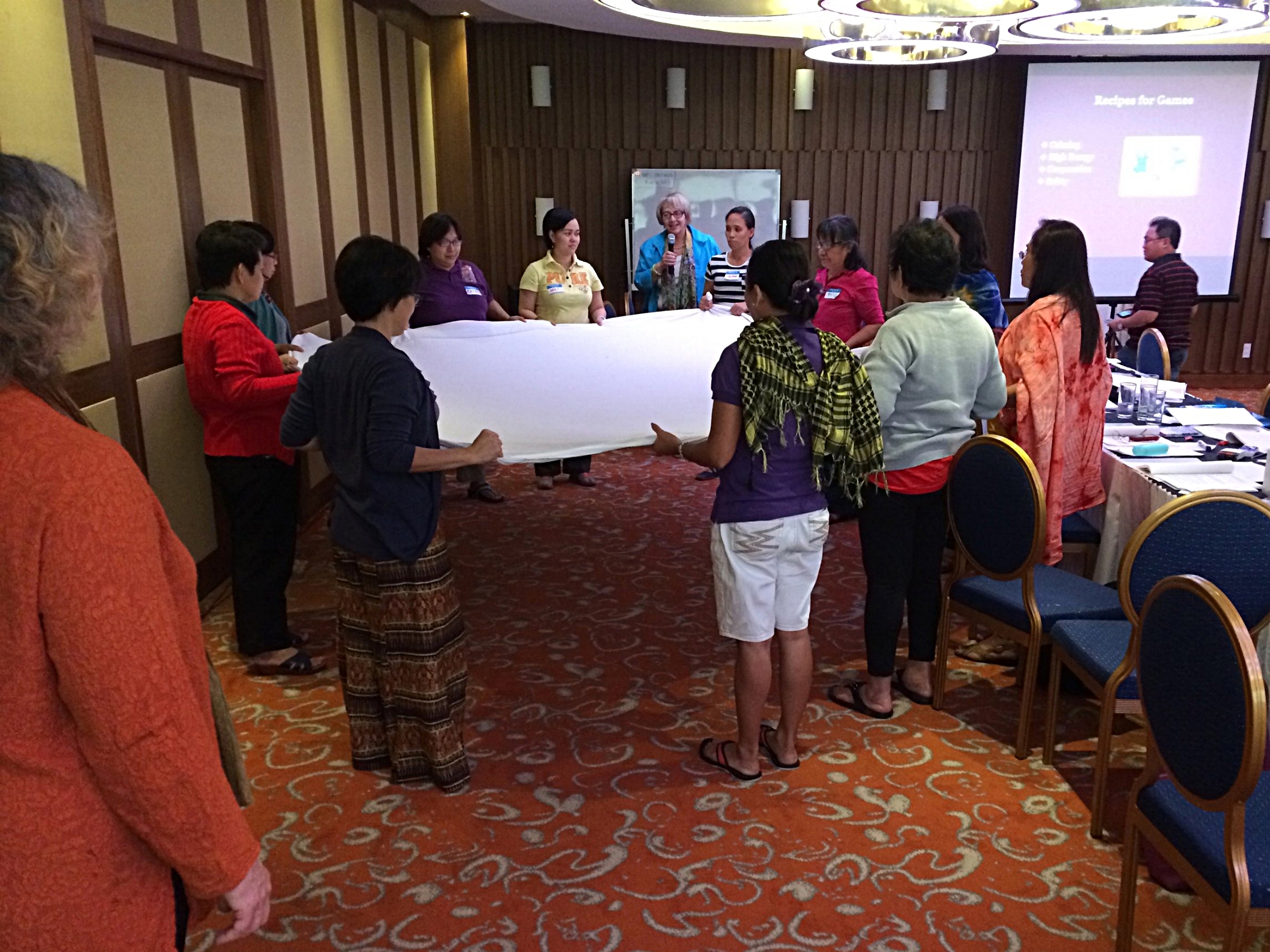
Help is available
Certified Practitioners
TRI offers certifications in both the Community Resiliency Model and the Trauma Resiliency Model. While both models have been described as deceptively simple, there is a method to our model. We have a growing network of trainers and practitioners that are available to you.
Latest News
Land Acknowledgment
The Trauma Resource Institute acknowledges the Gabrieleno/Tongva peoples as the traditional land caretakers of Tovaangar (the Gabrieleno/Tongva world, including the Los Angeles Basin, South Channel Islands, San Gabriel, and Pomona Valleys, and portions of Orange, San Bernardino, and Riverside Counties) and Torojoatngna (Claremont) specifically. With this land acknowledgment, The Trauma Resource Institute is committed to a continuous effort to learn and understand how we can best partner with the indigenous peoples of this land and partner with, empower, and center the voices of historically underrepresented people.
We honor the sacred, historic, and unique relationship indigenous peoples have with their ancestral lands. We also recognize the intergenerational strength and inherent resiliency of the indigenous communities of this land and how this also continues to be passed to each generation today. Indigenous stewardship and rightful claims to these lands have never been voluntarily relinquished nor legally extinguished. We pay respects to the members and elders of these communities, past and present, who remain stewards, caretakers, and advocates of these lands, river systems, and the waters and islands of the Santa Barbara Channel.
Claremont Heritage 2021
TRI EDI Committee
